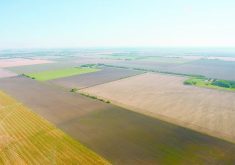Farm organizations look for modern ways to attract new blood in smaller, busier communities
It’s a common problem at agricultural meetings in Canada.
The same people are seemingly everywhere: a small group of dedicated volunteers sitting on multiple committees, boards and sub-groups for one or two farm organizations in their province.
While their dedication and service are appreciated, many of those volunteers are either grey or are dyeing their hair at least once a month.
The current leaders of farm and rural organizations know they have to recruit the next generation of leaders, but the question is how.
Read Also

Sustainable food has ‘lost all meaning’: prof
That marketing strategy is deader than a doornail, says a University of Guelph professor who specializes in consumer preferences and perceptions of agriculture and food.
Clayton Robins, executive director of the Manitoba 4-H Council, recently brought together representatives of commodity groups, agricultural societies and rural organizations to search for potential answers at a workshop in Headingley, Man.
Marlene Baskerville, executive director of the Manitoba Association of Agricultural Societies, said the lack of leaders isn’t just an agricultural issue. It’s a challenge for institutions in most rural areas and small towns.
Long-time volunteers would like to move on but can’t because no one is taking their place.
Theresa Bergsma, general manager of Manitoba Corn Growers, said the current generation has to step back so the next group can take over.
As an example, her hometown of Carman, Man., holds a curling for cancer fundraiser. Last winter, the veteran organizers pulled back and handed the reins to the younger crowd. The older leaders provided guidance, but didn’t interfere.
Bergsma said the event was a huge success, raising the most money ever.
“They can do it … but we can’t let them off the hook.”
She also said young people need to understand that successful organizations and communities are built; they don’t happen by chance.
Robert Galbraith, member services director for the Manitoba Canola Growers Association (MCGA), said many young farmers want to get involved but a shortage of farm labour is a hindrance.
“What we tend to forget is that these guys are running farm operations. They have challenges finding people to run their operations while they’re away.”
Galbraith said organizations should consider more modern ways to connect with volunteers. Driving three hours to meet in a church basement or a community hall doesn’t make a lot of sense when online meetings could be just as effective.
“I think we need to re-jig how we engage with them,” Galbraith said.
Cory Chalk, director of marketing programs with Farm Credit Canada, said it’s unnecessary to re-invent the wheel when it comes to leadership development.
She recommended an audit of existing programs and approaches to assess what works and then building upon successful models.
The MCGA organizes canola leadership conferences and invites prospective farm leaders to the event.
MCGA executive manager Bill Ross said there’s no guarantee participants will become volunteers, but it offers a nucleus of people to draw from for future roles within the association.
Bergsma said the agricultural industry and rural communities can’t just rely on young leaders. The focus should be on attracting new leaders, regardless if they are 25, 45 or 55.
Contact robert.arnason@producer.com
















